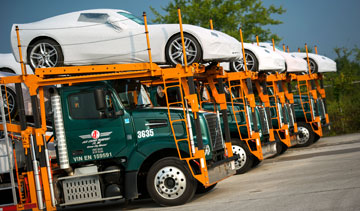
Pumping premium gasoline a waste of money in most cars, says AAA study
by Tom Krisher, The Associated Press

The American Automobile Association says most cars are designed to run on regular gas and gain no benefit from a higher-octane top-up

PHOTO General Motors
Some drivers occasionally like to treat their cars to higher-octane fuel in the belief it boosts performance.
AAA says it’s just money out the tailpipe—lots of it. In a national survey on gasoline use, AAA said 16.5 million U.S. drivers spent $2.1 billion they didn’t need to in the past year on premium gasoline.
Many think premium means quality. But AAA researchers found that while it has more octane, it didn’t increase horsepower or fuel economy, decrease emissions or clean engines any better than regular gas in cars that are designed by the manufacturer to run on 87-octane regular.
“Drivers see the ‘premium’ name at the pump and may assume the fuel is better for their vehicle,” said John Nielsen, AAA’s managing director of automotive engineering.
However, if your owner’s manual specifically says to run your car on 93 octane premium or 89 octane mid-grade gas, you should do it to make it perform optimally, according to the researchers. More luxury and performance brands are using turbocharging or supercharging to get better performance out of smaller engines, and those may require premium gas, Nielsen said.
AAA researchers joined with the Automobile Club of Southern California to test V8, V6 and four-cylinder engines, coming up with the same results each time, Nielsen said.
Seventy per cent of U.S. drivers own vehicles that require regular gas, while 16 per cent are required to use premium fuel. The rest, about 14 per cent, must use at least mid-grade gas or have an alternative fuel such as electricity, AAA says.